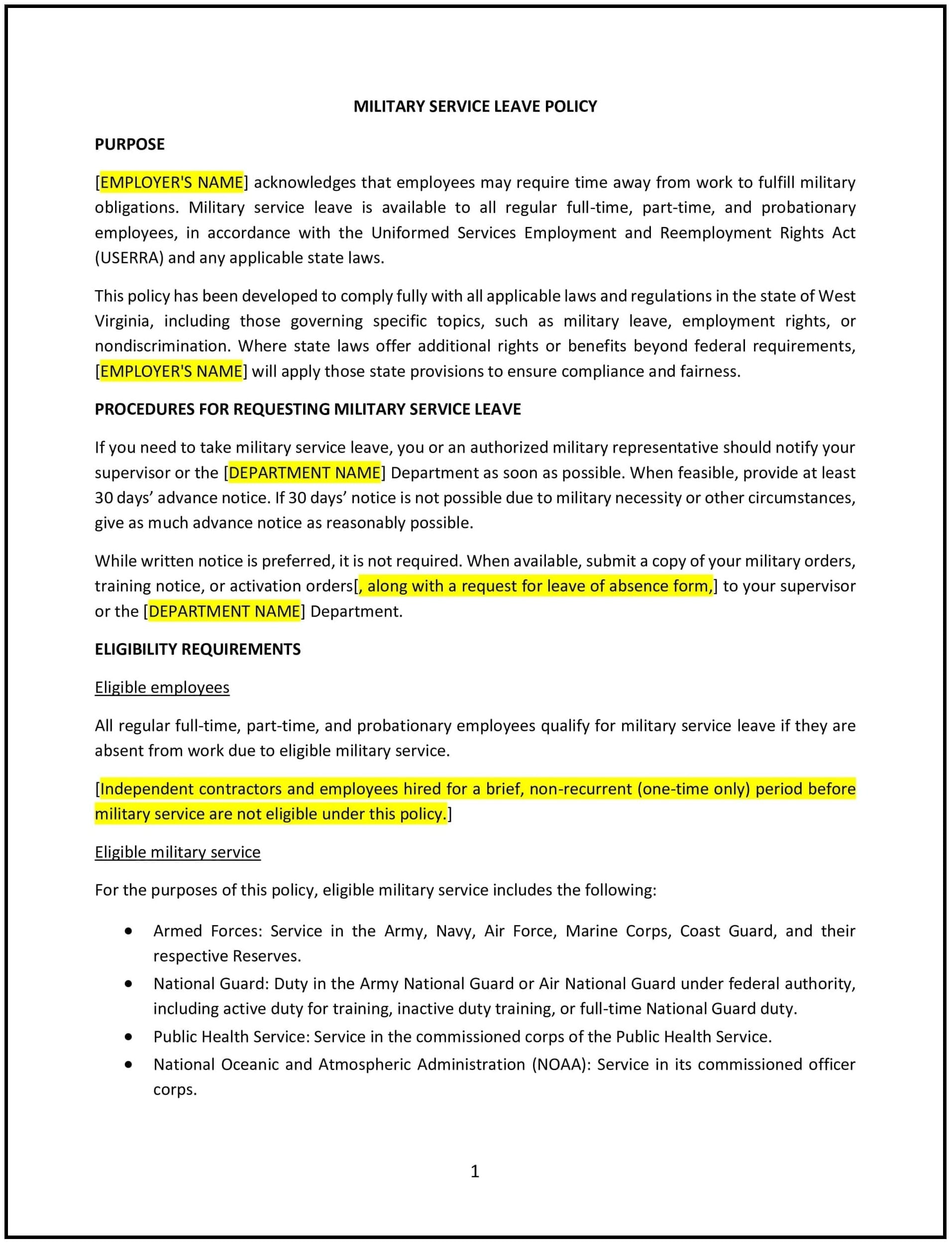Military service leave policy (West Virginia): Free template
Got contracts to review? While you're here for policies, let Cobrief make contract review effortless—start your free review now.

Customize this template for free
Military service leave policy (West Virginia)
In West Virginia, a military service leave policy ensures that employees called to active duty, training, or other military obligations can fulfill their service commitments without jeopardizing their employment. This policy supports compliance with the Uniformed Services Employment and Reemployment Rights Act (USERRA) and applicable West Virginia laws, while fostering a supportive environment for employees in the armed forces.
The policy outlines eligibility, notification procedures, and guidelines for reinstating employees after military leave.
How to use this military service leave policy (West Virginia)
- Define eligibility: Specify which employees are eligible for military leave, including members of the U.S. Armed Forces, Reserves, National Guard, or other uniformed services.
- Outline notification procedures: Require employees to provide advance notice of their military service obligations, including official documentation such as orders or schedules.
- Address pay and benefits: Clarify whether military leave is paid or unpaid and outline the continuation of benefits, such as healthcare or retirement contributions, during the leave period.
- Explain reemployment rights: Reaffirm employees’ rights to reinstatement to their previous or equivalent position upon returning from military leave.
- Support compliance: Ensure the policy aligns with USERRA and West Virginia laws governing military leave and employee protections.
Benefits of using a military service leave policy (West Virginia)
- Promotes fairness: Ensures employees in military service are treated equitably and without discrimination.
- Supports compliance: Aligns with federal and West Virginia laws to protect the employment rights of service members.
- Enhances workplace culture: Demonstrates the organization’s commitment to supporting employees serving in the military.
- Reduces disputes: Provides clear guidelines for managing military leave requests and reemployment, minimizing misunderstandings.
- Fosters retention: Encourages loyalty by supporting employees who balance military service with their professional responsibilities.
Tips for using a military service leave policy (West Virginia)
- Communicate the policy: Share the policy with employees during onboarding and ensure it is easily accessible for reference.
- Train managers: Provide training to supervisors on handling military leave requests and ensuring compliance with legal requirements.
- Maintain documentation: Keep records of military leave requests, orders, and reinstatement actions to ensure transparency and accountability.
- Provide resources: Offer support services, such as counseling or financial planning, to employees and their families during military leave.
- Review periodically: Update the policy to reflect changes in USERRA, West Virginia laws, or organizational practices.